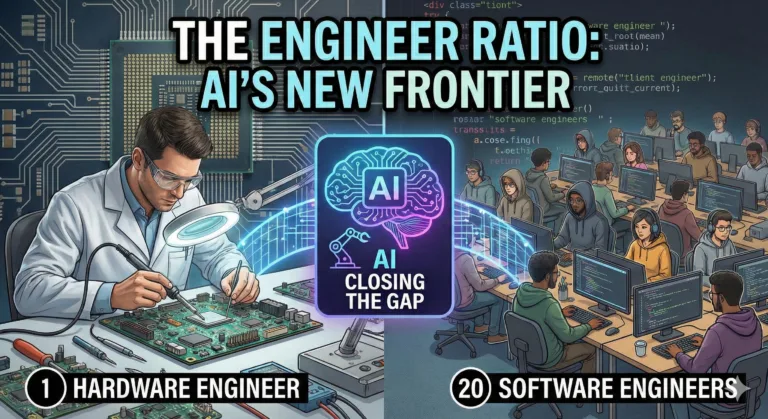- RF engineering focuses on the physical design and optimization of radio wave-based systems, while telecommunications covers broader data transmission networks and protocols.
- Both fields offer strong career prospects, but FPGA work is more closely linked with digital design and embedded systems, often overlapping with both disciplines.
- Master’s programs in telecommunications tend to be more theoretical, while RF programs emphasize hardware, antennas, and signal propagation.
A recent surge in demand for reliable wireless connectivity and smart devices has reignited interest in the distinct but overlapping worlds of RF engineering and telecommunications. The question of which specialty to pursue—especially for those interested in FPGA (Field Programmable Gate Array) applications—is crucial for students and professionals aiming for impactful tech careers.
RF Engineering vs Telecommunications: Core Differences and Overlap
While both RF and telecommunications engineers play critical roles in modern connectivity, their day-to-day responsibilities and required skills differ:
- RF engineers design and optimize the physical components that transmit radio signals, such as antennas, amplifiers, transmission lines, and modulators. Their work ensures that equipment meets stringent performance standards, often requiring travel, hands-on troubleshooting, and compliance with technical regulations. Key skills include expertise in test equipment, system performance, and antenna design. According to Zippia, RF engineers earn a higher average salary ($88,301) compared to telecommunication engineers ($81,384), reflecting the specialized nature of their work.
Telecommunications engineers are responsible for designing, installing, and maintaining systems that transmit data over wired or wireless networks. Their expertise spans network protocols, VOIP, telephony, fiber optics, and system monitoring. Telecom engineers must diagnose faults, recommend upgrades, and ensure high-quality data transmission. They also work on broader infrastructure, including mobile networks and satellite systems.
Despite these distinctions, the two fields overlap considerably—modern telecom engineers often need strong RF knowledge, and vice versa. Many job postings and academic programs blend both skill sets, reflecting the integrated nature of wireless and networked communications.
| Aspect | RF Engineering | Telecommunications |
|---|---|---|
| Focus | Physical layer (hardware, antennas, amplifiers) | System layer (protocols, network design, data transmission) |
| Key Skills | Test equipment, antenna design, system optimization | VOIP, telephony, fiber optics, troubleshooting |
| Average Salary | $88,301 | $81,384 |
| Typical Degree | Electrical Engineering | Electrical Engineering |
| FPGA Relevance | Signal processing, hardware acceleration | Embedded networking, protocol acceleration |
FPGA Careers: Embedded Systems, RF, and Telecom Applications
FPGAs are programmable silicon chips that allow engineers to implement custom digital logic. They’re widely used in both RF and telecommunications, but the nature of the work differs:
- In RF engineering, FPGAs are often used for real-time digital signal processing, hardware acceleration of modulation/demodulation, and prototyping new radio architectures. Engineers must understand both analog and digital domains to bridge hardware and software effectively.
In telecommunications, FPGAs power high-speed networking equipment, protocol accelerators, and error correction systems. Mastery of digital design and embedded systems is critical, as is knowledge of communication protocols and data security.
Industry experts note that while both RF and telecom master’s programs can lead to FPGA roles, many FPGA engineers pursue specialized training in embedded systems or digital design—sometimes outside of traditional RF or telecom tracks. Employers in tech and finance sectors increasingly seek candidates with hands-on FPGA experience for roles in wireless infrastructure, 5G, IoT, and cybersecurity.
Recommended : Digital Electronics for Placements – A Step-by-Step Guide
Choosing the Right Path: Education, Skills, and Industry Trends
When deciding between a master’s in RF or telecommunications, consider the following:
- RF programs emphasize hardware, antennas, signal propagation, and compliance standards. They are ideal for those who enjoy physical design and troubleshooting.
- Telecommunications programs are typically more theoretical, focusing on network protocols, data transmission, and systems integration.
- FPGA work often aligns more closely with digital design and embedded systems, which may be a distinct specialization or part of either curriculum.
Emerging trends such as 5G, edge computing, and IoT are driving demand for engineers who can bridge RF and telecom expertise, particularly those skilled in FPGA development. Top companies—including Meta, Apple, and PayPal—pay premium salaries for hybrid skill sets, with RF engineers earning up to $115,000 and telecom engineers up to $109,000 in leading markets
For those aspiring to work with FPGAs, pursuing a path in embedded systems or digital design—while maintaining a strong foundation in either RF or telecommunications—offers maximum flexibility and career growth in a rapidly evolving industry.
Discover more from WireUnwired Research
Subscribe to get the latest posts sent to your email.




